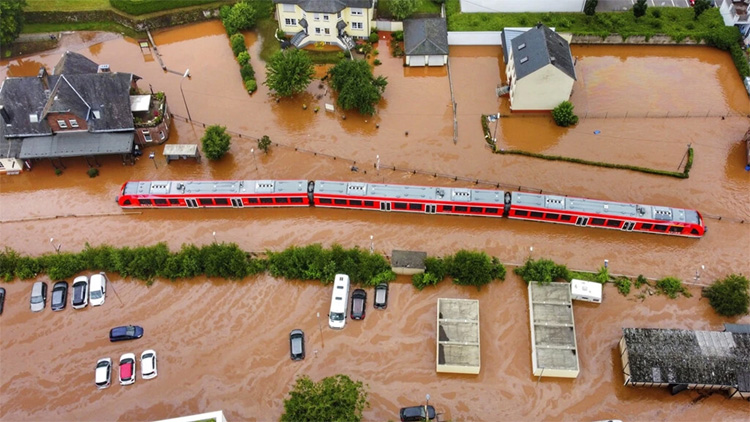Into the unknown: Earth’s climate enters uncharted territory
As the Earth continues to experience unprecedented levels of warming, scientists are emphasising that the soaring temperatures are not the only concern.
The rising heat is a clear indication that human-generated pollutants are warming our environment, leading to severe consequences.
Kim Cobb, a climate scientist at Brown University told the Associated Press, “Heat sets the pace of our climate in so many ways. It’s never just the heat.” However, it is not just the heat that we should be worried about, numerous distress signals from nature emphasize the gravity of the situation.
Stefan Rahmstorf of the Potsdam Institute for Climate Impact Research emphasised the dangers posed by the increasing heating of our planet caused by fossil fuel use. He urged immediate action to curb these impacts, as our lives and ecosystems are at stake.
The warming of the oceans is another alarming consequence of climate change. Oceans have absorbed about 90% of the heat generated by greenhouse gas emissions. In April, global ocean temperatures reached a record 21.1 degrees Celsius, attributed to the combined effects of greenhouse gas emissions and an early El Nino formation.
Disturbingly warm ocean temperatures have been documented in the North Atlantic, with extreme marine heat waves occurring near Ireland, the UK, and the Baltic Sea, according to data from the Copernicus Climate Change Service.
One of the notable indicators of climate distress is the deterioration of coral reefs, which are dying due to rising ocean temperatures. Furthermore, the intensification of Nor’easters, severe storms along the US East Coast, and the pervasive smoke from wildfires that have plagued North America this summer are additional telltale signs of climate change.
Wildfire smoke, once primarily associated with the West Coast, has now become a concern for the East Coast as well. Climate change is making wildfires and the resulting smoke more frequent and intense. The recent influx of wildfire smoke from northern Canada has caused hazardous air quality levels in eastern North America, alerting scientists to the increasing prevalence of this environmental hazard.
An unexpected occurrence is the early arrival of El Nino, a phenomenon characterised by warming Pacific Ocean waters. El Nino formed earlier than usual, replacing the cooling effect of La Nina, which had a dampening effect on global temperatures. This early formation allows El Nino more time to strengthen. The World Meteorological Organisation predicts a 98% chance that at least one of the next five years will break the record for the warmest year, surpassing 2016, when an exceptionally strong El Nino was present.
Antarctic sea ice is also shrinking at an alarming rate, reaching record lows. On June 27, the ice sheet covered 11.7 million square kilometers, nearly 2.6 million square kilometers less than the average for that date from 1981-2010, according to the National Snow and Ice Data Center. This substantial loss of ice is equivalent to an area nearly four times the size of Texas.
The multitude of recent climate-related events and “firsts” serve as undeniable evidence that we have entered uncharted territory when it comes to climate change.
The effects are felt across the globe, from the warming oceans to the intensification of wildfires and the loss of Antarctic sea ice. Immediate and significant action is necessary to mitigate the impacts and ensure a sustainable future for the planet.


Comments are closed.